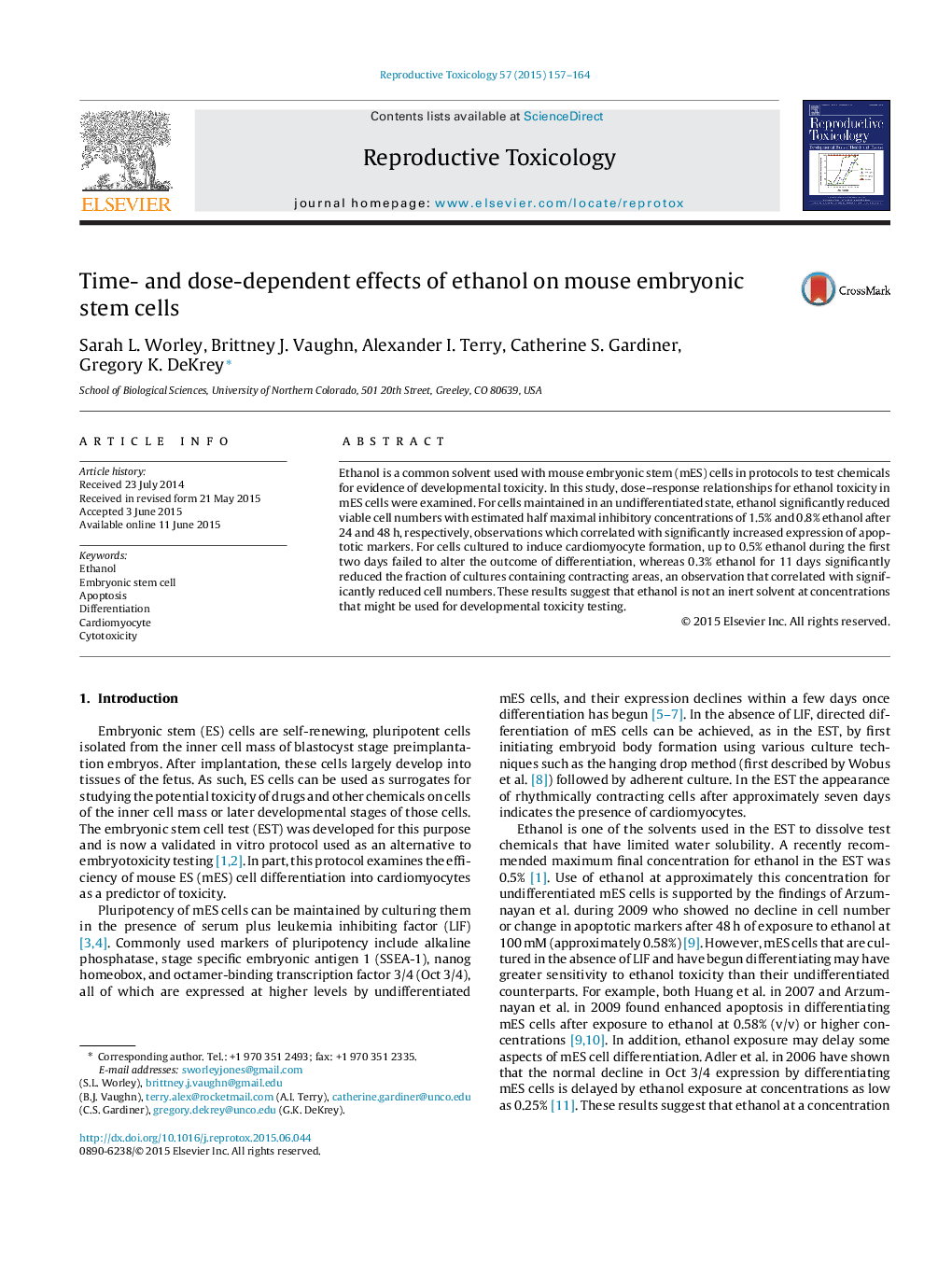| Article ID | Journal | Published Year | Pages | File Type |
|---|---|---|---|---|
| 2593396 | Reproductive Toxicology | 2015 | 8 Pages |
•We examined dose–response relationships for ethanol toxicity in mouse embryonic stem cells.•Ethanol caused a significant loss of viability and apoptosis in undifferentiated ES cells.•Ethanol at 0.5% for two days failed to alter differentiation.•Ethanol at 0.3% for 11 days significantly altered differentiation and reduced cell numbers.
Ethanol is a common solvent used with mouse embryonic stem (mES) cells in protocols to test chemicals for evidence of developmental toxicity. In this study, dose–response relationships for ethanol toxicity in mES cells were examined. For cells maintained in an undifferentiated state, ethanol significantly reduced viable cell numbers with estimated half maximal inhibitory concentrations of 1.5% and 0.8% ethanol after 24 and 48 h, respectively, observations which correlated with significantly increased expression of apoptotic markers. For cells cultured to induce cardiomyocyte formation, up to 0.5% ethanol during the first two days failed to alter the outcome of differentiation, whereas 0.3% ethanol for 11 days significantly reduced the fraction of cultures containing contracting areas, an observation that correlated with significantly reduced cell numbers. These results suggest that ethanol is not an inert solvent at concentrations that might be used for developmental toxicity testing.
